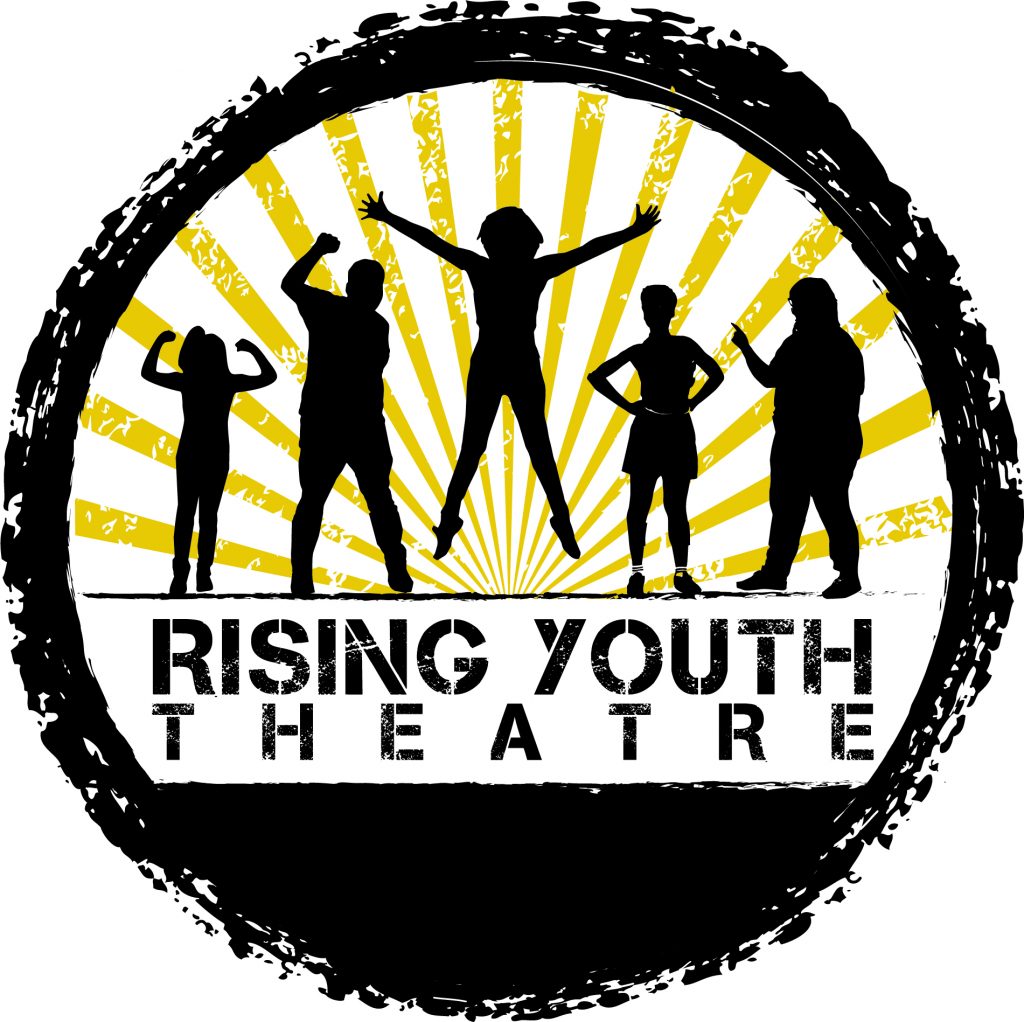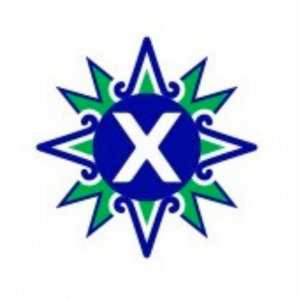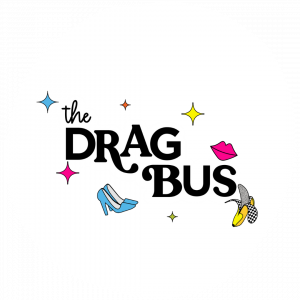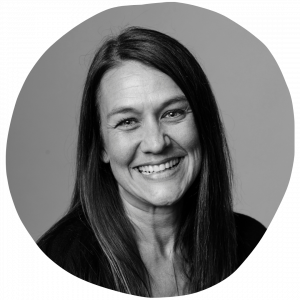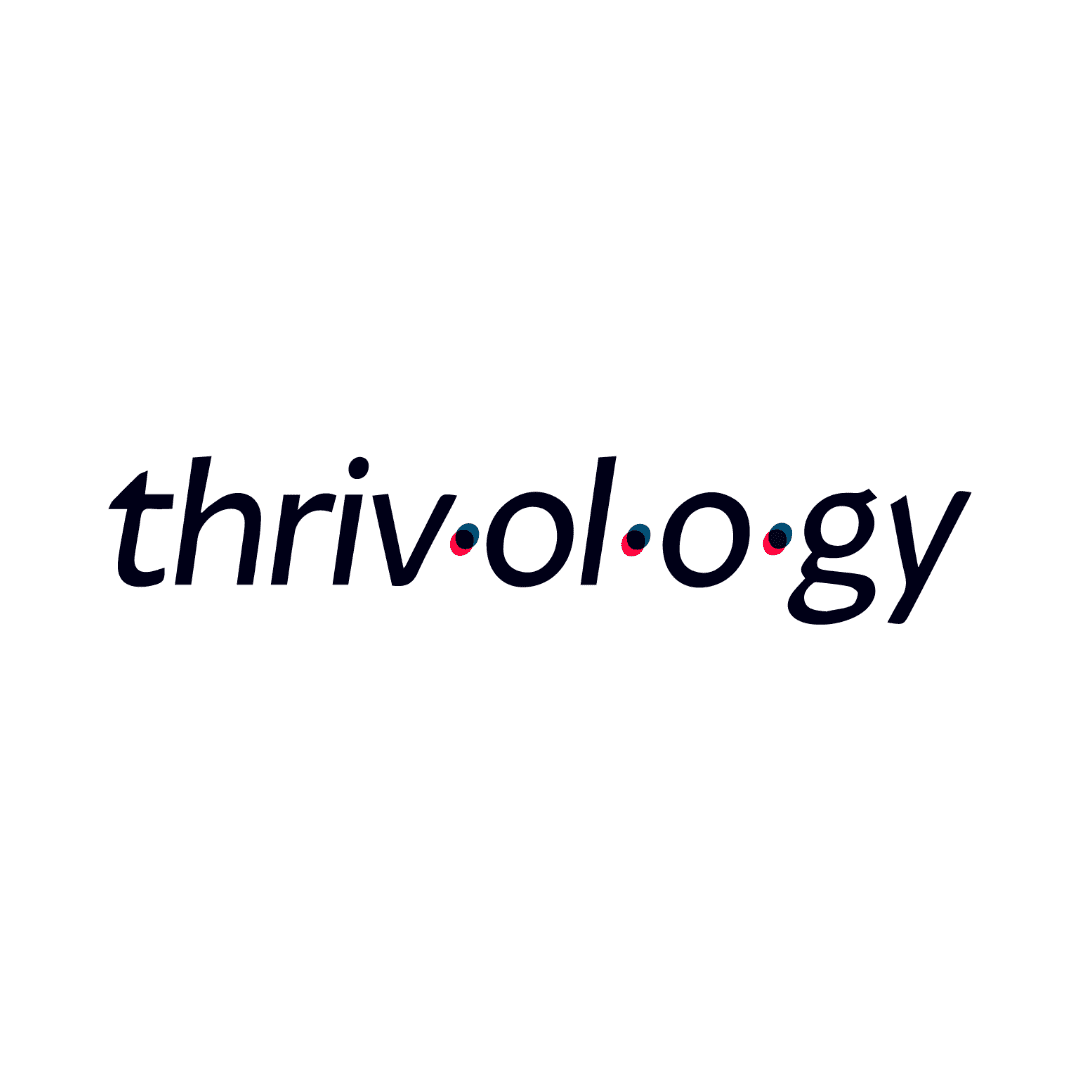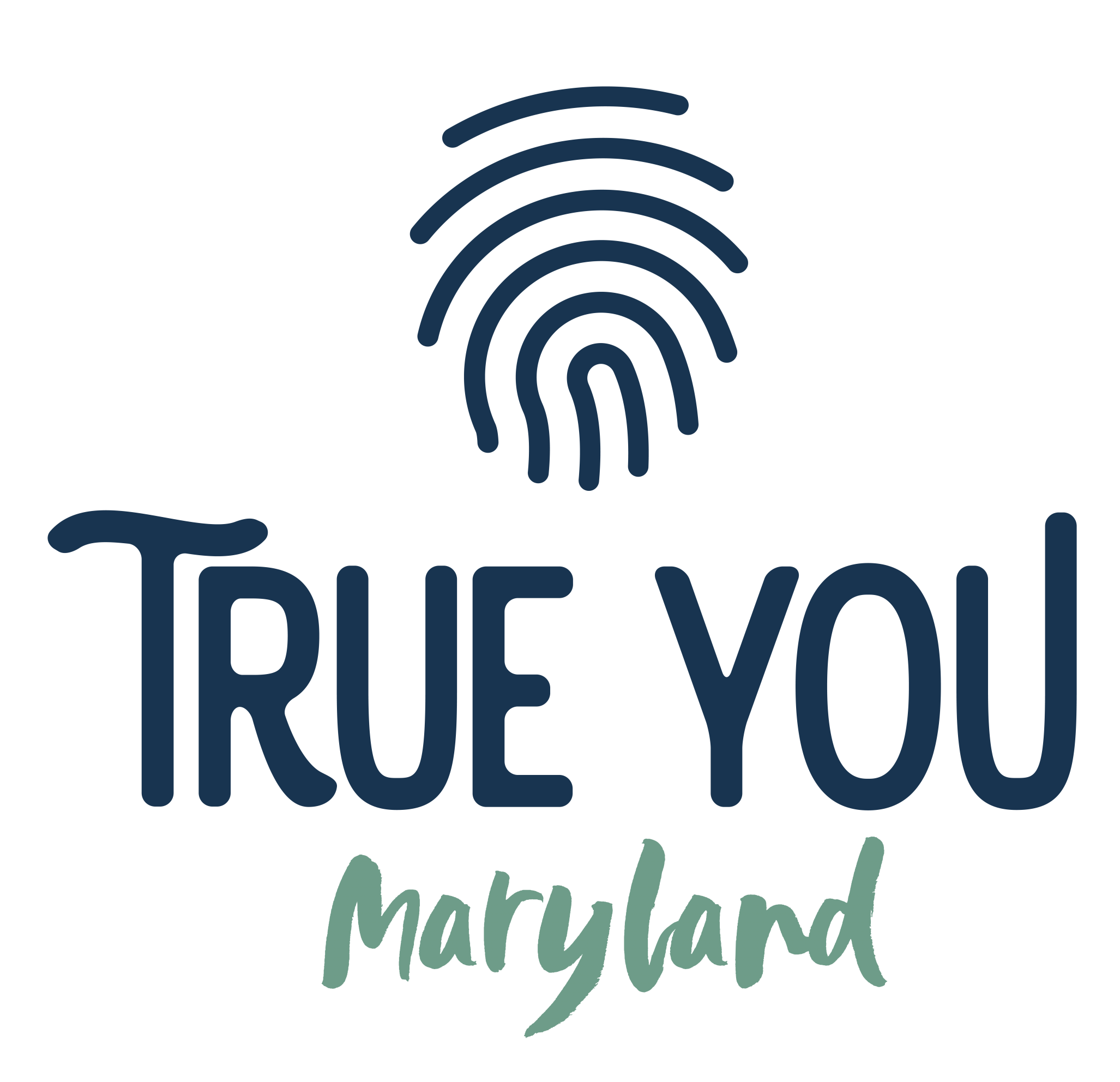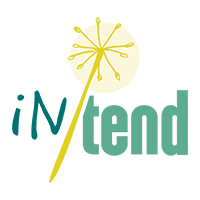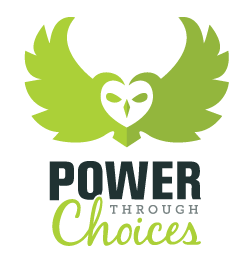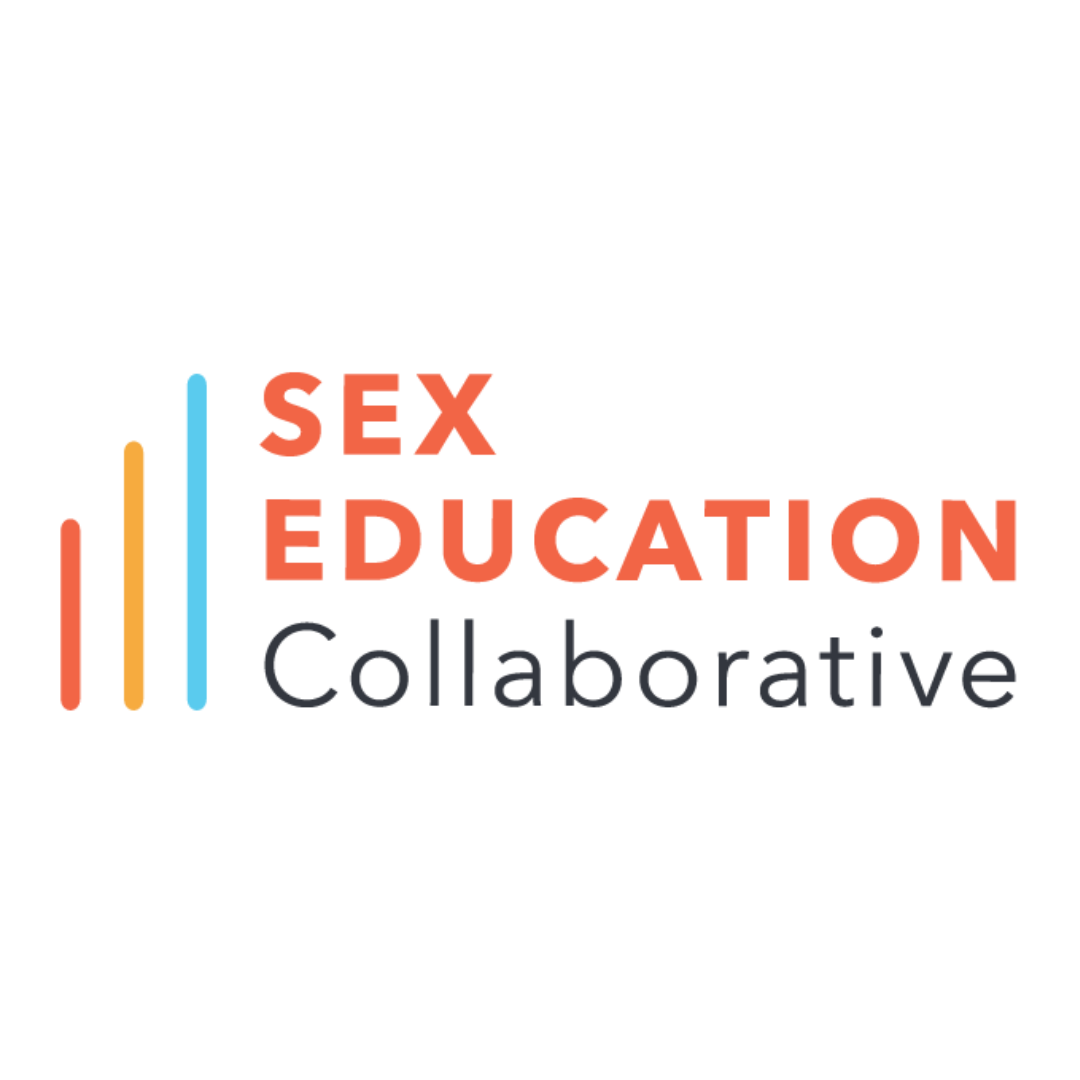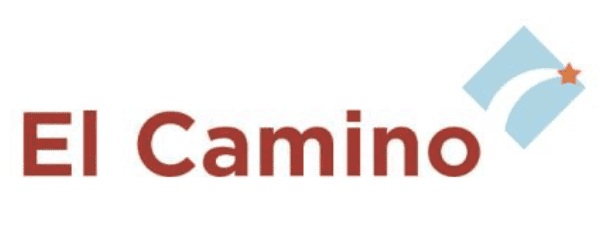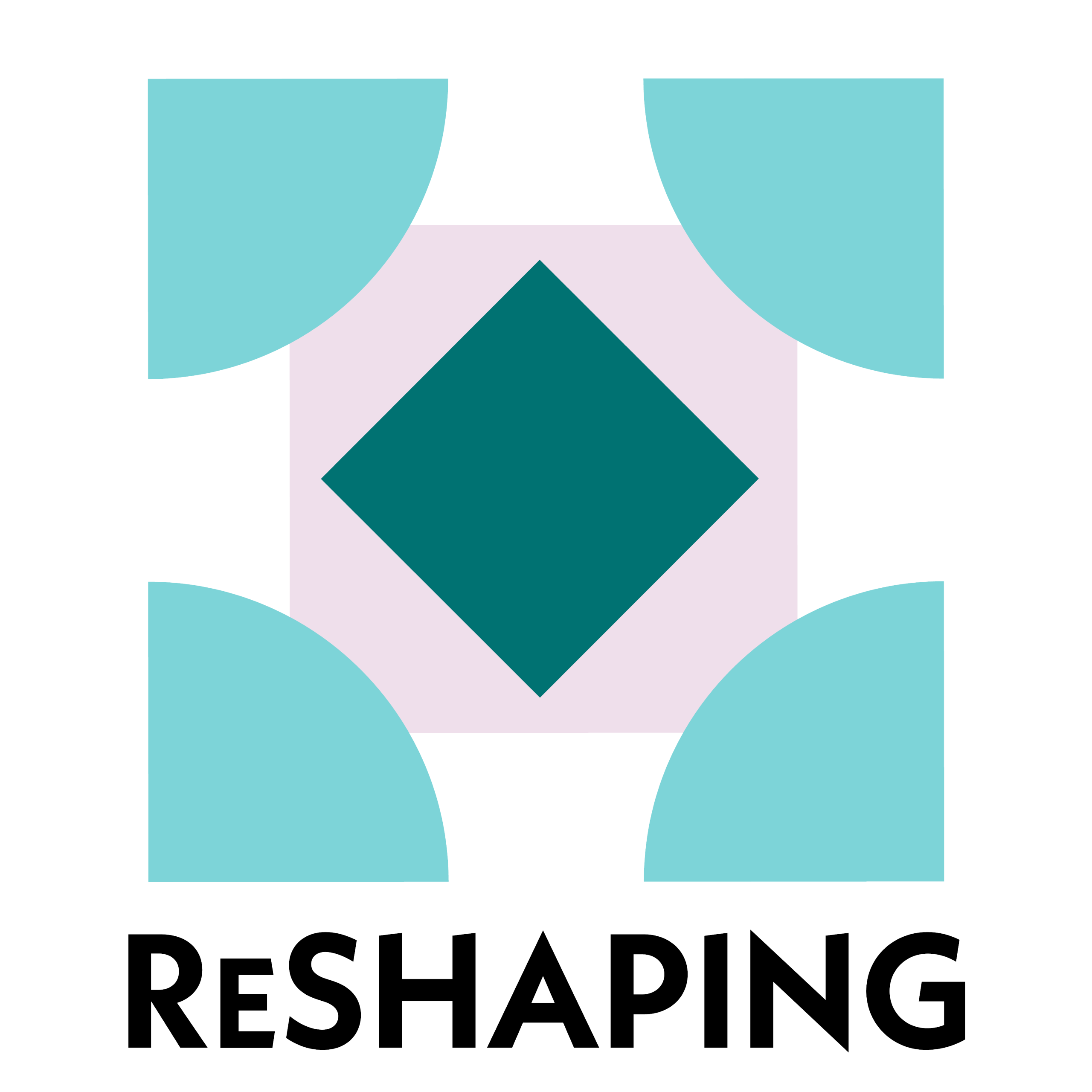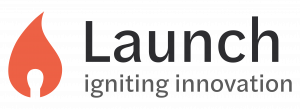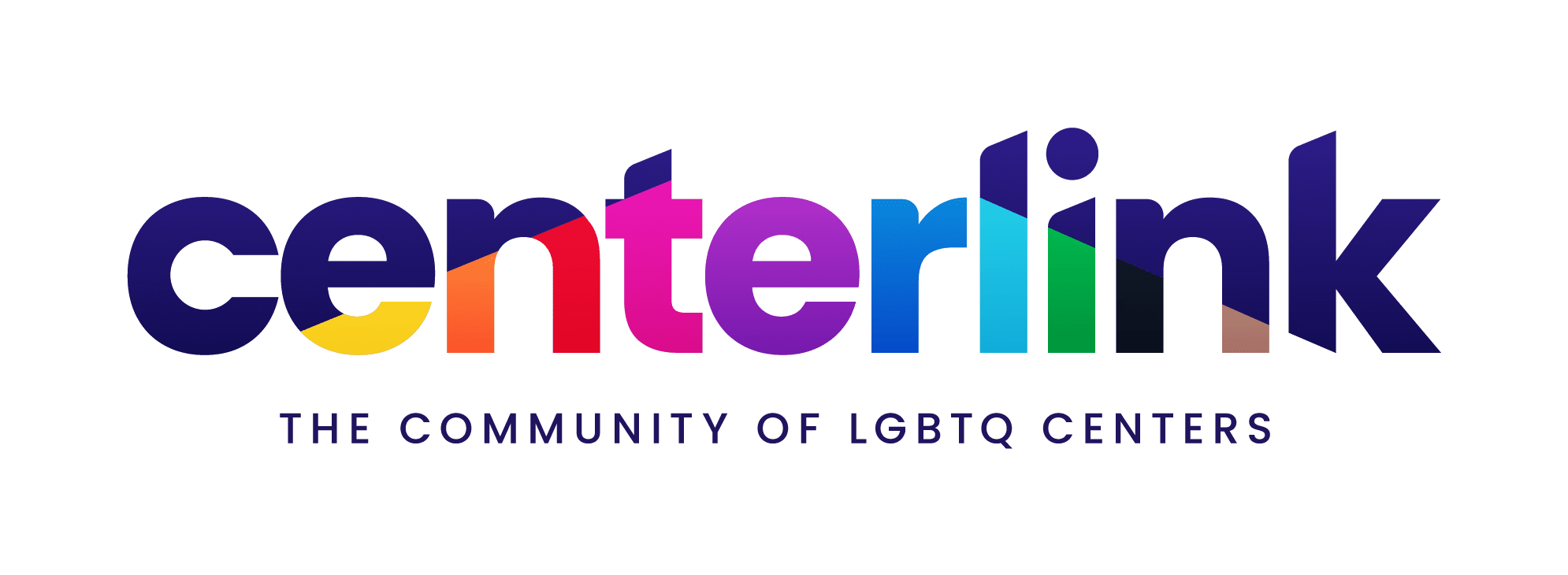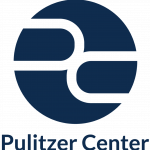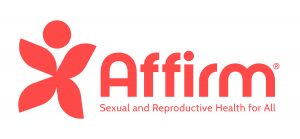rise, reimagine, and reinvent
44th Annual National Conference
November 18-20, 2024 | Phoenix, AZ
Today’s adolescent experience unfolds with breathtaking speed.
Embrace it. Time, tech, and trends wait for no one.
Stay curious. There is power in trying new things, in asking bold questions.
Keep listening. Take it all in. What young people need is ever-changing.
Do something—anything. It won’t be perfect, but it will be something.
At #HealthyTeen24, we’ll extend a hand to the willing and wavering—to the dreamers and doers cheering on change and to those imploring, “steady as we go.” We’ll forge connections with new colleagues under the desert stars. We’ll reflect on what sets today’s young people apart. And we’ll strain, stretch, and shift our understanding of innovation until it colors our everyday work.
Low-budget, low-tech, no matter. Sometimes, it’s the tiny acts that make the greatest change.
Our work is a journey, not a destination. Today’s trends may be tomorrow’s tropes, but with the right mindsets, we’ll be ready for what(ever) the future may hold.
Like a phoenix, we’ll rise, reimagine, and reinvent.
Be part of the magic at #HealthyTeen24.
Featured Sessions
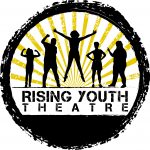
About the Rising Youth Theatre
Founded in 2011, Rising Youth Theatre’s mission is to imagine and build the world we want to live in through youth-driven, multigenerational collaboration, and justice-centered artistic process and performance that generates reflection, connection, and action.
Rising Youth Theatre is a youth leadership organization working at the intersection of art and social justice. Rising Youth Theatre believes that theatre and the arts are powerful tools with which young people can stand up and advocate for themselves and their peers, and that artmaking and storytelling are a catalyst for change. Young people work in leadership spaces across all levels of the organization, including the staff, board, and creative spaces.
Rising Youth Theatre produces original plays around topics that matter to community including, race, mental health, student push-out, and more. Their school residency program brings social-emotional learning through the arts to hundreds of kids each year.
Youth Forward: Power Sharing and Intergenerational Collaboration
Opening Session: Monday, November 18, 4:00 PM MST
Rising Youth Theatre, a youth leadership organization working at the intersection of art and social justice kicks off #HealthyTeen24 with an interactive theatre performance showcasing the organization’s commitment to shared power where young people work in leadership spaces across all levels of the organization, including the staff, board, and creative spaces.
Wondering how do they do it? Grab a seat before the lights at Monday’s Opening Session to hear, see, and immerse yourself in our experiences. Through presentation, discussion, and performance using improv and storytelling, Rising Youth Theatre will spotlight successes, challenges, and transformations from their intergenerational work, leaving you wondering how you can do it, too!
Teach Me How to Dougie! Centering Youth Leadership without Tokenism
Opening Session: Tuesday, November 19, 9:00 AM MST
Using a trauma-responsive lens, Dr. Lexx Brown-James will examine systemic, societal, and personal biases about young people to raise awareness of how those perceptions impact the work that young people do. She’ll provide tools to understand youth behavior, assess how your own experiences as a young person affect working with today’s young people, and help you center youth leadership without tokenism.
Before you leave this session, Dr. Lexx will not only have you examining your and your organization’s work with young people, she’ll have you implementing new ways of doing the work. And, don’t worry, you won’t have to do the Dougie, unless you want to!
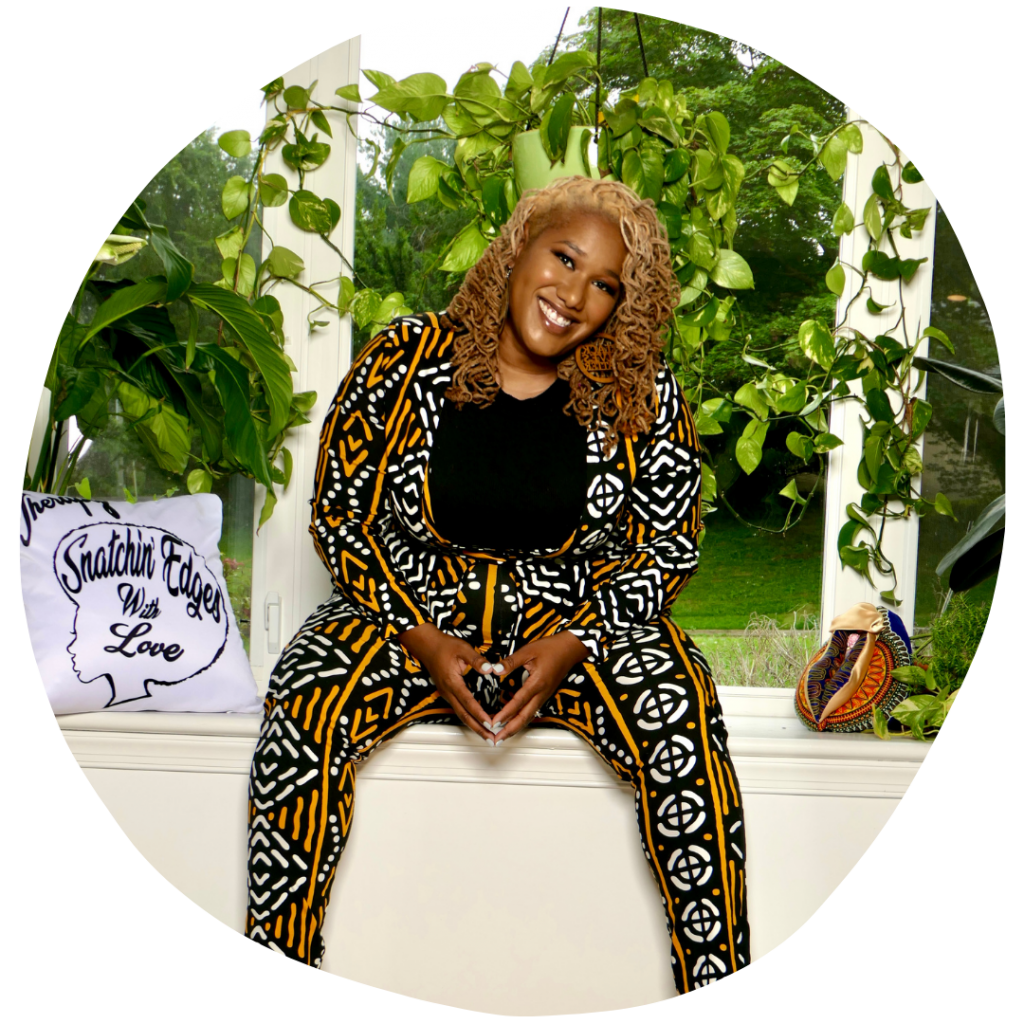
About Dr. Lexx Brown-James, LMFT, CSE, CSE ›

About Dr. Lexx
Dr. Lexx Brown-James, LMFT, CSE, CSES is a premiere sexologist leading the field of sexuality with shame-free sex education and innovative sex therapy skills. As an AASECT-certified sexuality educator and supervisor, Dr. Lexx provides education and therapy from womb to tomb through her practice, The Institute for Sexuality and Intimacy, LLC, keynotes, panels, and curriculum design.
She is a multiple-time best seller and creator of Dr. Lexx’s Relationship Tune Up Cards, and is featured in prominent media like CNN, Essence, It Gets Better, The New York Times, Scary Mommy, and NPR. Dr. Lexx breaks down the most complicated and taboo topics to create easily digestible and actionable change.
Black, Indigenous, and People of Color (BIPOC) Connect
Tuesday, November 19, 5:00 PM MST
Come together for a screen-printing art activity created specifically for Black, Indigenous, and People of Color (BIPOC) communities, led by Xico, a Latino and Indigenous Arts Organization based in Phoenix.
The BIPOC Connect is a space for connection and expression, where we can explore our stories and identities through art. Let’s share, create, and build community in a space that reflects and honors who we are. Additionally, this time will be used for collaborative discussion of any time-sensitive sexuality topics impacting Black and Brown communities.
Please note: this space is specifically for attendees who hold BIPOC identities.
Queer Connect
Tuesday, November 19, 8:00 PM MST
Get ready for an unforgettable experience at #HealthyTeen24 as we launch Queer Connect, inspired by your feedback from #HealthyTeen23! We heard your voices, and we’re thrilled to create a vibrant space that truly celebrates LGBTQ+ identities and the issues that matter most to queer young people and their communities.
This isn’t just another workshop, we’ll dive into a lively gathering facilitated by The Drag Bus! Join us for fun games, make new friends, and enjoy dazzling performances from some of Phoenix’s most fabulous drag queens. Remember, this space is exclusively for our queer attendees who hold LGBTQ+ identities, so come ready to connect, celebrate, and shine!
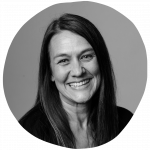
About Laura Lloyd, MS, MPH
Laura Lloyd has over 25 years of experience in public health research and digital innovation, primarily applied in the areas of sexual and reproductive health and HIV/STI prevention. She’s currently an independent consultant, working on a range of research, design, and development projects, including Healthy Teen Network’s In/Tend Innovation Hub.
Prior to consulting, she spent a decade at Power to Decide, where her favorite days were spent building the contraception-support program, Bedsider, and coaching federal grantees through the human-centered design process as part of Innovation Next.
She received a BA in Psychology and Sociology from University of Colorado, an MPH from Emory University, and an MS in Human-Computer Interaction Design from Indiana University Bloomington. She lives in San Diego with her family, where she enjoys the weather daily, even if she doesn’t get to the beach nearly often enough.
Innovation Springs from the Mind and Inspires Change
Youth and Adult Panel: Wednesday, November 20, 2:30 PM MST
Innovation is more than just developing apps and never-before-seen programs: It’s about rising to the challenge when others tell you “No,” and reimagining the way you think about and do your work. It also means reinventing tried-and-true strategies, theories, and programs while seeking new ones.
Hear from colleagues who have started reimagining the world of adolescent sexual and reproductive health and discover what they have learned from other models, practices, and industries. You can be sure you will walk out of the #HealthyTeen24 Closing Session ready to rethink what innovation is and what it means for your innovation journey.
Panelists
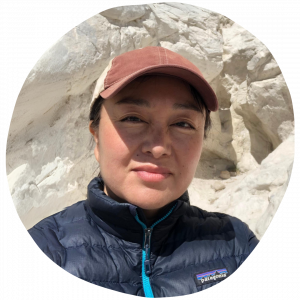
Heather Yazzie Campbell, MA
Heather Yazzie Campbell (Apache/Navajo) is an outdoor leadership program director for Project Venture. She oversees experiential and adventure-based education programs at several Indigenous schools across New Mexico. Additionally, she leads Project Venture implementation workshops for a plethora of Indigenous communities throughout the United States, Canada, and Jamaica.
Lastly, she is a curriculum writer and assists in developing and honing Project Venture program methods and adaptations of Project Venture. She has been involved in the field of experiential education for over 20 years. Heather grew up on the White Mountain Apache Reservation in Arizona and enjoys seeking adventure in the sandstone infused lands of the southwest.
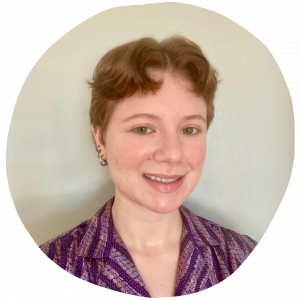
Tylia Lundberg
Tylia Lundberg is a University of California, Berkeley graduate with a BA in Psychology. Currently, they work as a Clinical Research Coordinator at the University of California, San Francisco under the Juvenile inJustice Behavioral Health (JJBH) Lab.
They have two years of experience in the field of behavioral health research for systems-impacted youth as well as prior experience in community-based work. While being early in their career, Tylia is committed to projects that will improve individual and community well-being as well as advocacy for youth voices.
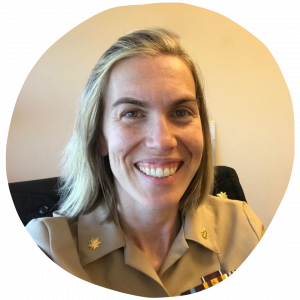
Jaclyn Ruiz, MPH
LCDR Jaclyn Ruiz is the Director of the Division of Adolescent Health Programs in the Office of Population Affairs. In her role, she oversees the Teen Pregnancy Prevention Program, a national, evidence-based grant program that funds diverse organizations working to prevent unintended teen pregnancy across the United States.
Prior to her role as a Division Director, LCDR Ruiz managed and led training and technical assistance for TPP grantees. LCDR Ruiz has been with the Office of Population Affairs for almost 10 years and with the U.S. Public Health Service for 16 years. Her work with the federal government began at SAMHSA working on the state mental health block grants. She then moved to HRSA to work on the Ryan White program where she managed the AIDS Education and Training Center grants which provided training and technical assistance to providers of HIV/AIDS services. Jaclyn has a Bachelor of Science in psychology from the University of Florida and a Master of Public Health from Florida International University.
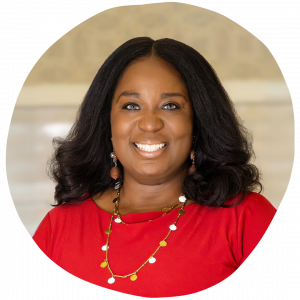
Brittany Wearing
Brittany Wearing is a dedicated public health professional committed to making a meaningful impact in every environment she engages with. With over a decade of experience across K-12 and higher education institutions, healthcare systems, and state-level non-profit organizations, Brittany brings extensive knowledge in adolescent reproductive and sexual health, curriculum development, program implementation, and human-centered design.
In her current role as Community Investment Manager at Fact Forward, Brittany integrates her expertise and human-centered design approach to develop and implement impactful public health initiatives. Her passion for this work is deeply rooted in her academic background, including a Bachelor of Arts in Public Health and a Master of Public Health in Health Promotion, Education, and Behavior, both earned from the University of South Carolina’s Arnold School of Public Health.
Brittany is particularly focused on advancing health outcomes for historically marginalized populations, with a specific interest in maternal and child health, reproductive justice, and adolescent health. Her work reflects a commitment to fostering equitable and effective public health solutions through innovative and empathetic design principles.
learning add-ons
These intensive, skill-building training sessions are an additional cost to the general conference ticket and have limited capacity.
Applying the Science of Trauma-Informed Care
Full-Day Training Session: Monday, November 18, 8:30 AM – 3:30 PM MST
Cost: $255
Priority will be given to those who did not attend this session last year.
No one can deny that everyone, regardless of age, geography, or identity, has faced trauma over the last few years. Between the pandemic, political and racial unrest, and a crippling mental health crisis, new hurt has emerged, and historical inequities have worsened.
As youth-supporting professionals, we have a responsibility to create safe, inclusive, and healing spaces for young people. And we, the adults, must also take care of ourselves and heal from our own trauma, so we don’t transpose our wounds on those we teach, guide, and mentor. Being familiar with what trauma is not enough. We must understand what it is born of, who it impacts, and most of all, how we can respond.
Brought you by the Thrivology collaborative, this Learning Add-On is for youth-supporting professionals who work directly with young people and who want to move beyond the basics about trauma to learn how to put trauma-informed and healing-based approaches into practice.
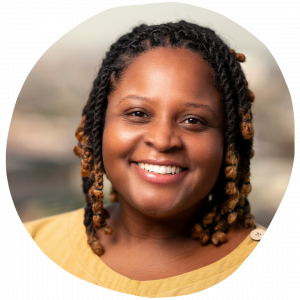
Terrinieka W. Powell, PhD
Terrinieka W. Powell, PhD, is a Bloomberg Associate Professor and Vice Chair for Inclusion, Diversity, Anti-Racism, and Equity in the Department of Population, Family, and Reproductive Health at Johns Hopkins Bloomberg School of Public Health (BSPH). She is also the Research Alliance Chair for Thrivology, a research-to-practice collaborative by Healthy Teen Network and the Johns Hopkins Center for Adolescent Health.
Partnerships with churches, schools, libraries, families, and community-based organizations are a cornerstone of her research. With partners, she creates interventions that are trauma-informed, sustainable, and responsive to community concerns. Her goal is to ensure that youth, especially those affected by trauma, have multiple pathways to achieve optimal health.
Dr. Powell earned her BA in Psychology from Williams College and her MA and PhD from DePaul University in Community Psychology. She also spent two years as a Kellogg Health Scholars Postdoctoral Fellow at the University of Michigan School of Public Health before joining the faculty at BSPH.
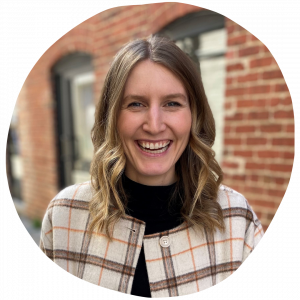
Mackenzie Piper, MPH, CHES
Mackenzie Piper, MPH, CHES, is a Manager of Training and Instructional Design at Healthy Teen Network who brings over 10 years of combined experience in teaching, research, training, capacity building, and instructional design. She is a passionate, equity-centered public health professional who wants to ensure that all young people receive comprehensive, inclusive, and trauma-informed sexual and reproductive healthcare services and education, regardless of who they are and where they live.
She is a co-author of a sexuality education curriculum using a gender-transformative lens, and she designs training topics such as violence prevention, characteristics of trusted adults/caregivers, and social media literacy skills. Mackenzie is a Certified Health Education Specialist and earned a Master’s of Public Health from the University of Washington in Seattle and a Bachelor’s of Science in Health and Human Sciences from Loyola Marymount University in Los Angeles.
Youth Are Ready, Are You? Reimagining Youth Engagement to Include Peer Leaders and Near-Peer Staff Members
Full-Day Training Session: Monday, November 18, 8:30 AM – 3:30 PM MST
Cost: $255
Adolescent health program staff responsible for hiring and supervising peer leaders and near peers need to be equipped with the knowledge and skills to support positive youth development (PYD) and provide age-appropriate professional development for the young people with whom they work. These investments in young people make programs richer and create an important, mutually beneficial dynamic.
For staff, it also means being open to seeing the value these young people add and changing (or adjusting) their approach to their work. During this Learning Add-On, we will provide a PYD refresher, introduce strategies for hiring and supervising peer leaders and near peers, and share free online tools that participants can take back to their organizations to assess and improve their work with young people.
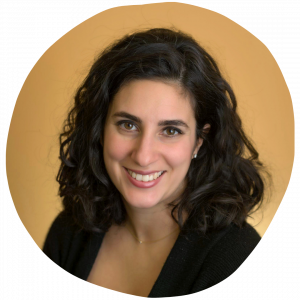
Lisa Aslan, MPH
Lisa Aslan, MPH, is a creative and innovative capacity builder, facilitator, and nonprofit leader with nearly 20 years of experience across a broad range of social impact programs. Lisa has been working to improve the lives of young people throughout her career. Lisa is an engaging facilitator who has provided trainings on youth development, adolescent health, equity, and inclusion, and management and supervision, to a wide range of clients including YMCAs, Boys and Girls Clubs, the National Parks Service, Girl Scouts of America, and others.
Lisa currently serves as the Senior Director of Training and Capacity Building at HRiA where she manages training projects focused on youth development, racial equity, and organizational development, among others.
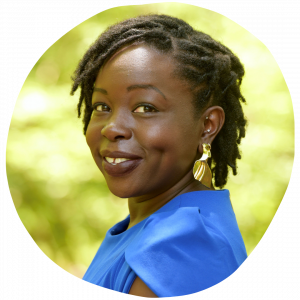
Lola Akintobi, MPH
Lola Akintobi is a Senior Consultant at JSI. She is a public health professional, dedicated to improving health outcomes for over fifteen years. Lola has supported young people to reach their education goals, delivered teen pregnancy prevention curricula, provided family planning counseling in a school-based health center, trained peer navigators to deliver HIV-prevention workshops, managed the delivery of health education to 2,500 ninth-grade students across 15 public schools, and delivered training and technical assistance to Massachusetts Department of Public Health-funded youth programs.
Lola prioritizes racial justice and health equity in every aspect of her work and leads with the intention of engaging all learners by incorporating different learning styles and interactive practices. She is a proud graduate of the University of Massachusetts Amherst, where she received a BA in Psychology, and Boston University, where she received an MPH in Maternal and Child Health.
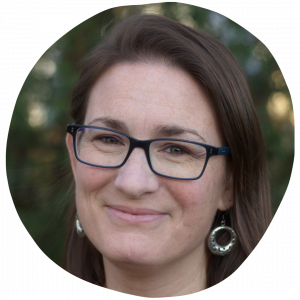
Lauren Bard, MS, LSW
Lauren Bard is a Senior Training Manager at Health Resources in Action (HRiA). She works on the BEST Initiative, Youth Worker Certification program, and the Behavioral Health and Racial Equity (BeHERE) overdose rescue training initiative. Lauren has many years of experience supporting young people and families in Boston. Before joining HRiA, Lauren ran youth development programs in the arts, athletics, and youth employment, and she previously worked in drop-out prevention, transitional living, and the juvenile justice system.
Lauren is a senior training consultant for gender-based violence prevention through Northeastern University’s Center for the Study of Sport in Society and has facilitated sex education and pregnancy prevention programming as a Peace Corps volunteer in Honduras. Lauren holds degrees in Criminal Justice from Northeastern University, where she focused on youth development and restorative practices.
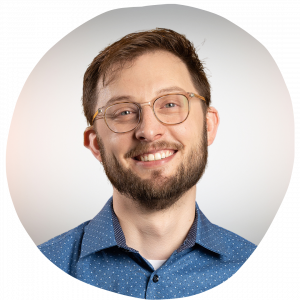
Anthony Betori, MPH
Anthony Betori is the Director of Curriculum and Innovation at Healthy Futures of Texas, and he is completing a Master’s in Public Health at Johns Hopkins University as a Bloomberg Fellow in Adolescent Health. Anthony grew up in Toledo, Ohio, then studied and lived in Chicago, Illinois, for ten years, where his work focused on education, youth empowerment, HIV-related services, and workforce development.
He moved to Texas in 2018, and his current work focuses on innovating new ways to involve young people in advocacy and curriculum development around sex ed and health care. He was awarded the 2020 Rising Star Award from the Texas Campaign to Prevent Teen Pregnancy and the 2022 SA Light award by the San Antonio Express-News.
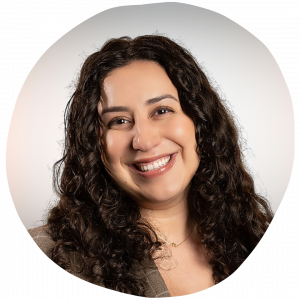
Sophia Montemayor
Sophia Montemayor is a proud San Antonio native, University of Texas at San Antonio Public Health graduate, and dedicated advocate. She devotes most of her efforts to elevating sexual and reproductive health and empowering youth and minority voices.
Over the last two years, Sophia has developed and taught innovative sexual health education curricula for young Texans that allow them to learn in safe and inclusive environments. She has championed positive youth development through a program called Youth Advocates, where young people are empowered to become civic changemakers within the sexual health movement. Sophia is driven by equity and the idea that all people deserve to make informed choices about their sexual and reproductive health.
Applied Improv: FUNdamental Skills for Supporting the Ever-Changing Needs of Young People
Half-Day Training Session: Monday, November 18, 12:30 PM – 3:30 PM MST
Cost: $145
In this interactive session, participants will learn first- hand how improvisation skills and exercises can apply to their professional and personal lives. Supported by decades of research, applied improvisation is a highly effective tool for embracing change and failure, honing active listening skills, and staying curious and motivated. We’ll share groundbreaking research connecting these activities with enhanced resilience, communication skills, and flexibility.
Ready to play? That’s right! We are going to play improv games to practice thinking quickly on our feet, working as a team to enhance our connections, building new worlds that center the well-being of young people, and collaborating to address challenges in a fun, low-stakes environment. No improv experience necessary; just bring your lived experience, growth mindset, and desire to learn!
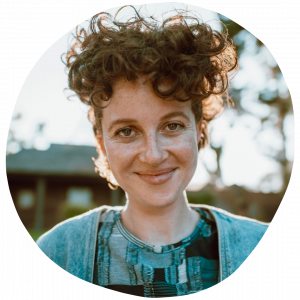
Jesse Greenfield, MPH, CHES
Jesse Greenfield (they/them/theirs), MPH, CHES, is a queer health communicator, storyteller, and improviser living in San Diego. Their approach to health education is deeply informed by their decade of improv experience and centers peoples’ lived experiences to co-create personalized, inclusive, and accessible education grounded in compassion and authenticity.
Jesse holds an MPH with a concentration in Health Communication and a BS in Biopsychology, and they are a NCHEC Certified Health Education Specialist. As co-founder, director of programming, and lead facilitator at Kaleidoscope Training Center, Jesse facilitates applied improvisation workshops to support individuals and teams in improving their communication with others, fostering environments of psychological safety, and being more flexible and resilient. Some groups they have worked with in this capacity include medical professionals, school staff, parents, social workers, youth as young as eight years old, and more.
The Co-Conspirator Next Door: Advancing Sex Ed in Your Community
Half-Day Training Session: Monday, November 18, 12:30 PM – 3:30 PM MST
Cost: $145
In a post-Dobbs America, with the Regressive Minority consistently waging war on LGBTQ+ young people and young people’s right to information, their bodily autonomy, racial justice, and more, it is more vital than ever that we all become co-conspirators and sex ed allies.
This workshop will supply you with everything you need to become a community advocate—messaging, community engagement how-to’s, and policy advocacy 101—and make a change right in your back yard. Calling all sex ed advocates: this session is for you!
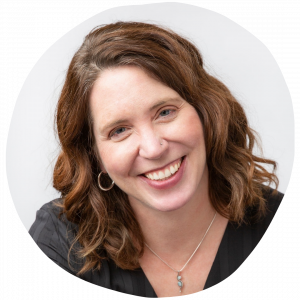
Alison Macklin, MSW
Alison Macklin, MSW is the Policy and Advocacy Director at SIECUS: Sex Ed for Social Change providing strategic guidance to communities looking to advance sex education and is a national leader in the comprehensive sex education field for over 20 years.
In 2019, she helped author and pass Colorado’s Youth Wellness Act, ensuring young people in that state are able to access inclusive comprehensive sex education. Alison is the author of the internationally published book: “Making Sense of It: A Guide to Sex for Teens (and Their Parents Too!),” a skilled sex education trainer, and adjunct professor at the University of Denver Graduate School of Social Work.
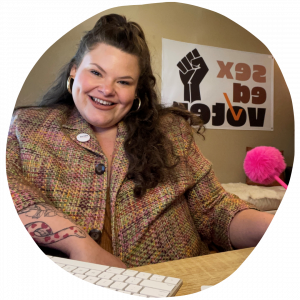
Miranda Estes, MSW
Serving as the State Policy Action Manager at SIECUS: Sex Ed for Social Change, Miranda spearheads the Sexuality Education Policy Action Council (SEPAC), which creates space for member organizations to gather to develop valuable advocacy, coalition building, and legislative strategy skills. She takes pride in cultivating meaningful partnerships and providing technical assistance, building capacity, and collaborating to support state/local policy initiatives.
As a master’s-level social worker, former community organizer, and a proud Mississippi girl, Miranda believes that building a strong “WE” is how we win a safer society for all!
agenda-at-a-glance
All times are in Mountain Standard Time (MST).
***Times and content subject to change***
Monday, November 18
Tuesday, November 19
Wednesday, November 20
workshop and roundtable sessions
Tuesday, November 19
Workshop Sessions: 10:45 AM – 12:00 PM
Checking the “Other” Box: Destigmatizing Data Collection
This training will equip staff in primary care settings with the knowledge and skills necessary to collect health information in a manner that respects the unique identities and experiences of transgender and gender-diverse individuals.
Participants will explore strategies to create inclusive data collection processes, ensuring that every patient feels respected and understood. Through interactive discussions, case studies, and practical exercises, participants will gain insights into the importance of culturally-competent data collection and learn how to implement best practices to enhance the quality of gender-affirming care in their work settings.
Co-Creating Peer Programs in a Border Community
The Campesinos Sin Fronteras 2THRIVE Initiative prevents teen pregnancy and sexually transmitted infections in a US-Mexico border community by fostering youth leadership, community service, and relationships with supportive adults. Annual cohorts of up to 12 volunteer youth, aged 12-18, receive a stipend to address local issues through civic action, advocacy, and service in a safe, inclusive, and mutual learning environment.
2THRIVE staff use creative methods to solicit insights and honest feedback that drive iterative programmatic changes. Young people feel heard as they witness their perceptions transforming program activities while gaining new leadership, advocacy, and accountability skills. Annual activities shift according to youth and community priorities, grounded in their diverse lived experiences, to address needs that are unmet by local services. This youth-driven approach inspires them to change the narrative of what is possible for teens in their community while making real impacts now.
Cómo Se Dice: Best Practices & Implementation in Sexuality Education in Dual Language Classrooms
This session will focus on the need for dual language instruction and the profound importance of cultural relevance in sex education. The presentation will finish with best practices for dual language sex education instruction and building a sex education curriculum. Information in this session can be applied to teaching other topics in dual-language classrooms.
Filling in the Gaps: Journalism as a Health Justice Resource
Studies show that young people believe that following news helps make them more knowledgeable and better equipped to take action in their communities. However, they report that the news they generally encounter makes them feel sad, angry, and/or fearful, is complicated and hard to follow, and poorly represents youth and their communities.
This workshop will enable youth-supporting professionals to bridge the gap between the journalism as an empowering force in young people's lives and the disempowering news they often encounter. We will facilitate a guided reflection on the role of news in participants' lives and the lives of the youth they support, share practices for effective, positive health-justice journalism, and emphasize media literacy skills that can help empower people of all ages to find the stories that matter to them and use them as a starting point for informed action.
Finding Your Way Through the Corn Maze: Responsibly Teaching Sexual Health in Rural Conservative States and Combative Environments
Which way do you go when you are stuck inside a maze of adhering to the law, dealing with mis/disinformation, and providing medically accurate education? Our youth deserve an education, free from values statements, bias, scare tactics, and BS.
In this session, you will learn how to navigate and balance teaching sexual health education within the laws of your state while empowering youth to make decisions surrounding their sexual health. We will be discussing challenges and barriers as well as successes our program has faced as we have implemented our Family Life Curriculum in rural, conservative areas in Tennessee.
Attendees will receive real-world examples, templates, and advice from subject-matter experts with firsthand experience partnering with conservative school districts. Whether you live in a conservative state, rural community, or a larger metro area, our hope is that you will leave our session with some ideas that apply to your sexual health programming.
Health-E You: Designing a Youth-Centered and Gender-Inclusive App to Support Sexual Reproductive Health Care
In this workshop, attendees will get hands-on experience using youth input to design technology-based solutions for youth sexual health. We will use the case study of Health-E You, a mobile web-based app originally designed to support contraceptive education decision-making for youth assigned female at birth prior to a clinic visit. Based on feedback from providers and young people, Health-E You is currently being expanded to address the sexual health needs of youth of all genders assigned male at birth.
Through group discussions and a hands-on activity, participants will delve into youth engagement strategies, including recruitment and retention, and consider the difficult decisions that need to be made in the face of conflicting feedback. Participants will engage in an app design activity using real feedback from young people and youth-supporting professionals, and we will close with a discussion of the additional factors to consider when designing a sustainable tool.
The World’s on Fire! Navigating Difficult Conversations with Youth
With increasingly politicized environments and ongoing tragic local and world events, educators are often asked to hold space for youth to talk through their experiences. While it is developmentally appropriate for youth to want to talk about difficult subjects, it can be difficult to find the appropriate boundaries of support, care, and engagement while creating supportive spaces for young people to process, be curious, practice critical thinking, and engage peer support.
In this workshop, we will explore the role of an educator in difficult moments and how to utilize best practices and theory to create space for youth to process their experiences and emotions. We will explore how to maintain a trauma-informed practice with a focus on leadership development, critical thinking, and social emotional learning, and talk through examples of difficult and controversial conversations that will build participants’ confidence when faced with these in the future.
Workshop Sessions: 1:45 PM – 3:00 PM
Beyond Force, Fraud, and Coercion: How Moral Panic Harms Sexually-Exploited Youth (and What to Do About It)
As anti-trafficking discourse continues to escalate in both news and social media outlets, many educators struggle to balance the narrative between sensationalized statistics and the requirement of many states to teach trafficking prevention during sexual health. Many prominent curricula continue to rely on fear and an approach reminiscent of D.A.R.E (Drug Abuse Resistance Education) to prevent commercial sexual exploitation despite disappointing results.
This session is the real trafficking conversation you never knew you needed. We will highlight history to sensitively destabilize some of the moral panic of anti-trafficking rhetoric while taking a nuanced look at the lived reality of youth in the sex trade.
We're going beyond the “Pizzagate” conspiracy theory to offer concrete resources, toolkits, and victim/survivor-led research so that educators and advocates working with anti-trafficking curricula can confidently address the messiness and complexity of this multifaceted issue using a social justice approach.
Charting a Course to Reproductive Wellness: Building Strong Foundations for Youth
By reducing barriers and enhancing access to care, we can significantly enhance the health and well-being of young people and increase autonomy in making the best healthcare decisions one young person at a time.
In this interactive session, attendees will explore effective strategies for facilitating conversations and providing comprehensive, noncoercive education to assist adolescents in defining their own sexual and reproductive health goals. Through the utilization of age-appropriate and easily accessible resources and tools, participants will learn how to have educational, empowering, and impactful conversations with adolescents about their individual reproductive health and contraceptive care needs.
We'll also share success stories that demonstrate the positive impact of improving the quality of sexual and reproductive health services for adolescents.
Empowering Queer Neurodivergent Youth: Navigating Intersectional Identities
Let's talk about where queerness and neurodiversity intersect and discover the powerful resilience of youth navigating these multifaceted identities!
Join Meredith, a bi+ and neurodivergent sex educator, for an enlightening journey as we delve into the challenges and triumphs of queer neurodivergent youth. Through engaging discussions and practical strategies, attendees will gain valuable insights and tools to become allies and advocates in creating inclusive environments.
Whether you're a parent, educator, or community member, this session offers a unique opportunity to deepen your understanding and support for youth at this intersection.
Incorporating Authentic Youth Voices into Organizational Frameworks: Moving Beyond Tokenism and Adultism
In this workshop, participants will explore the essential aspects of identifying and addressing adultism while understanding how to foster meaningful inclusion of youth voices in organizational frameworks. Through interactive activities and discussions, attendees will discover hidden adultism and learn practical techniques and strategies for addressing it, and how to incorporate authentic youth voices in day-to-day operations, program development, and the various stages of program evaluation processes. We will emphasize positive individual development that results from genuine experiences of agency and youth empowerment. Join us to unlock the transformative potential of youth engagement and leadership!
Numbers to Narratives: Using Data to Uplift Stories, Uncover Needs, and Build Community Readiness for Comprehensive Sex Ed
This session introduces participants to a new tool to increase their community's readiness for healing-centered, inclusive, and comprehensive sexual health education and services in their schools: Numbers to Narratives. Educators and community workers can leverage Numbers to Narratives workshops to spark data-backed discussions among students and staff about the state of adolescent sexual and reproductive health in their community.
Participants will use national and local health data as a jumping-off point for sharing lived experiences. This enables facilitators to build support and generate community-led insights about what's already working, plus hopes, needs, gaps, and opportunities.
In this session, we'll dive into how to organize and lead Numbers to Narratives workshops in your community. Participants will get a hands-on experience by participating in shortened versions of Numbers to Narratives workshop activities. In small groups, they will begin working through the facilitator's guide to prepare for Numbers to Narratives workshops in their communities' schools.
The Pill is Free: Now What? The Future of Birth Control Access for Young People
After decades of organizing and advocacy, the first ever over-the-counter birth control pill has been approved in the United States. Young people were a critical part of this historic win, from campus organizing to directly testifying at the FDA hearing. Now, it's time to look ahead to opportunities to further expand access for young people across the country.
In this session, we will discuss current challenges young people still face when accessing contraception of all types, including misinformation, cost barriers, and privacy. We will also discuss solutions to these barriers and how young people themselves are organizing around birth control access in their communities, from social media to vending machines. Finally, we will create a vision board of creative ideas to explore new horizons for young people's contraceptive access.
The Struggle is Real: Delivering LGBTQ+-Inclusive Sex Ed in Hostile or Hesitant Communities
Many of us have experience with pushback in our communities, work, families, and more when we want to incorporate information relevant to LGBTQ+ youth. It can take the form of a community partner or parent expressing "concern" about working with us or the LGBTQ+-inclusive content we want to provide, or a student saying something offensive in class. Then, we are asked to change a lesson in ways that is not inclusive and/or is outright harmful.
In this workshop, we'll discuss challenges like these that can come up while working with hostile or hesitant community partners, parents, and students, as well as share lessons learned and tips for how to handle anti-LGBTQ+ sentiments when providing sex education. Participants will have the opportunity to practice real scenarios and learn how to turn challenging situations into growth opportunities.
Workshop Sessions: 3:15 PM – 4:30 PM
Beyond Lecture: Sexuality Education Through Interactive Games and Activities
Educational games are innovative strategies used to engage students while bridging the gap between content delivery and student application. Sexuality is a pliable topic in which hands-on learning allows students to improve their teamwork, communication, and problem-solving skills.
Additionally, guided discussions, as part of an activity debrief, expose students to diverse perspectives, help them recognize and investigate their own assumptions, improve listening skills, and affirm students as co-creators of knowledge. Pairing games or activities with guided discussion enables educators to target essential concepts during a debrief, thus enriching students' understanding of abstract, taboo, or challenging concepts.
This session will describe interactive games and activities for a variety of sexuality topics including sexual orientation and gender identity, contraception, reproductive anatomy, and healthy relationships. Participants will review assignment criteria and rotate between stations to experience each activity or game. Presenters will provide debrief questions and lead a Q&A for audience members.
Cultivating Skills for Effective Sex Ed Advocacy: Postcards from Arizona to the Nation
Since 2021, Arizona law has required school boards to review sex ed curriculum before it can be delivered to students. The responsibility for presenting this information has largely fallen to sex educators, regardless of their expertise in public policy or the skills required to address policymakers.
This workshop will highlight a series of advocacy trainings developed for Arizona sex educators in direct response to state-specific legislation, serving as a “how-to” model for other states. Presenters will review EducateUS's Messages that Move Action for Sex Education and other strategies for a successful board presentation.
You will also hear directly from local health educators about their successes and challenges presenting to school boards after receiving advocacy training. Participants will create pro-sex ed testimonials for use in their local communities and will practice responding to arguments from the opposition.
From Voices to Outcomes: Engaging Communities across A Project’s Entire Lifecycle
In this presentation, we explore the transformative power of integrating community input throughout the entire lifecycle of a project from its initial design phase to the dissemination of outcomes. We delve into the strategies and benefits of incorporating their perspectives, needs, and insights at every stage to ensure better-designed services, policies, and programs that are more likely to be embraced and supported by the community, but also sustainable.
This approach emphasizes the importance of inclusivity and diversity, and reflects and respects the voices of all stakeholders, which is critical for creating equitable solutions that foster trust and cooperation while meeting the needs of the community.
Navigating the Virtual Realm: Transformative Virtual Learning Experiences
Virtual learning is not going away anytime soon. In fact, learning professionals are relying more and more on virtual learning and exploring innovative strategies to foster professional growth in an engaging and meaningful way. It's essential these days for instructional designers and trainers to effectively adapt content and practices for virtual learning.
Join this session to learn how to navigate the virtual realm to deliver the professional development that your partners need when it is convenient for them. This workshop will provide practical tools, resources, and techniques, and share personal experiences, to enhance virtual learning experiences.
We will also show how learning management systems continue to push the possibilities of asynchronous learning opportunities by showing an early preview of the process and development of PRISM – a statewide, mandated program provided through a learning management system.
Thriving Voices: Using Visual Voices, an Arts-Based Research Methodology, to Explore Thriving in Young Adults After Teen Economic Abuse
Teen economic abuse (TEA) is a form of relationship abuse and includes interference with education, employment, and finances. Recently, the Thrivership Model replaced survivor theory, which recognizes the agency necessary to survive of those who have experienced intimate partner violence, and investigates how survivors can move towards a positive outlook, improved health, and a strong social network.
The Thriving Voices Project aimed to engage youth in an arts-based project that explores how young adults who experienced TEA define thriving after leaving their relationship and inform resource development for survivors of TEA. Participants were asked to paint, draw, and write about thriving after leaving the relationship and about resources they needed. Participants worked together to decide where to attach their paintings and writings together to create one Visual Voice. Findings of the Thriving Voices Project will help youth-supporting practitioners work with youth who have experienced violence to thrive and contribute to tailored interventions for youth survivors.
We've Got Skillz: Upping the Facilitation Game with Co-Regulation
Hey, facilitators—join me for a rock star session about leveling up your game with co-regulation!
"Hey Sheila, what the heck is co-regulation?"
Excellent question! Co-regulation is a supportive process between facilitators and youth that helps young people develop self-regulation, a human superpower.
"But Sheila, I already have way too much to do in my classes - I can't possibly add anything else."
I hear you. I've been there. And the awesome news is that this session is about bringing awareness to how we're already doing this (mostly by instinct), and then making it intentional, so we're supercharging the effort. When we do, what we want most as facilitators—young people leaving with knowledge and self-regulation skills that can help them build strong, beautiful futures—that gets supercharged, too. Give me 75 minutes: I'll hook you up with skills and strategies for successful co-regulation. Come see me. 😉
Wednesday, November 20
Workshop Sessions: 9:00 AM – 10:15 AM
Creating Space for Young People and Youth-Supporting Professionals to Heal: The Role of Healing-Centered Engagement in the CRUSH Project
When, why, and how are we going to heal? This complex question lies at the heart of this session.
Together, we will explore what becomes possible when we fundamentally shift our view of trauma, including the causes, impacts, and opportunities for intervention. A blend of design activities and storytelling will be used to help each participant better understand the importance of creating healing spaces for the young people they support and for themselves.
During this session, participants will learn about healing-centered engagement, including how this approach differs from trauma-informed care, and specific changes we can each make to purposefully begin healing in both our professional and personal lives. Presenters will reinforce key concepts and provide tangible action steps through sharing how healing-centered engagement has served as a through line for CRUSH, a federally-funded project supporting the sexual and reproductive health of college students at the University of Houston.
Developing a Culturally Responsive Caregiver Guide to Support Latine LGBTQ+ Youth at Home and in the Community
This workshop will introduce the LGBTQ+ Caregiver Guide, developed by the health education and adapted/PE staff, students, and partners of Portland Public Schools. We will share how we used data to drive this work and how we engaged collective voices to inform the guide adaptations to best meet our community’s needs.
We will also share the strategic steps taken to partner with culturally-specific agencies to adapt the Spanish-translated guide and develop a culturally-relevant Latine LGBTQ+ Caregiver Guide that was informed by parents of the PPS community.
Including Queer Youth: How to Build an LGBTQ+ Youth Advisory Group
Youth have invaluable input for our organizations and programs, and we need to listen to them! While supporting our own LGBTQ+ Youth Advisory Group aka 'QueerVisory' and conducting focus groups with youth advisory members and facilitators around the country, we've learned many lessons which we will share in this session.
Attendees will gain a framework to develop their own LGBTQ+ advisory group, hear some tips, and get to dig into the nitty-gritty details of running a group. This session will be formatted in the style of a QueerVisory meeting for an immersive experience and will include opportunities for group work and sharing expertise.
Love Smart: Building Protective Factors for Healthy Teen Relationships through Sexual Health Education
Participants will learn about the epidemic of teen dating violence in the United States and how comprehensive sexual health education inherently builds skills to prevent or disrupt unhealthy relationships. Through San Ysidro Health (SYH) Teen Clinic's community- and clinic-based programs, sexual health education is delivered via a multi-disciplinary and multi-pronged approach to reach as many youths as possible.
Participants will learn about the specific ways SYH Teen Clinic is educating on healthy relationships through multigenerational presentations and creative activities, and have the opportunity to dive into their own program offerings to explore the link between sexual health, boundaries, self-esteem, and healthy relationships by developing an action plan to provide, or expand upon, the diverse services in their communities.
What’s the Secret Sauce? Distilling the Core Components of a CSE Program for System-Involved Youth
What makes a program effective? Is it the content of the program, the way the content is taught, or the context in which it is taught?
Knowing that sexual risk behaviors, such as early age of sexual initiation and unprotected sex, pose a threat to the wellbeing of system-involved youth (i.e., those in foster care or juvenile services) because of increased risk of STIs, HIV, and unintended pregnancy, we aim to identify the core components of a comprehensive sexuality education (CSE) program that are most effective in changing behavior for this extremely vulnerable population.
Let’s nosh on new questions about health behavior promotion for system-involved youth and dish about CSE programs and strategies that will leave you satisfied!
Why Does It Hurt When I Pee? Answering Youths’ Burning Questions
Navigating the landscape of sexual health education can be challenging, especially when it comes to answering sexual health questions from youth. Over the past decade, we have collected anonymous questions directly from the teens we educate and constructed a roadmap to help you answer these tough questions in your communities. From the intricacies of anatomy and the nitty-gritty of STIs, to the mysteries of pleasure and the sex lives in the animal kingdom, we've encountered and prepared for it all!
Through interactive exercises and role-playing scenarios, attendees will practice responding to real questions in a safe and supportive environment. This session goes beyond simply understanding the questions, it equips participants with the tools and confidence to provide informative and supportive responses to our youth's burning questions. Have you ever wondered why men have nipples? Join us to find out!
Workshop Sessions: 10:45 AM – 12:00 PM
Developmental Evaluation: How We Learned to Stop Worrying and Embrace Uncertainty
Have you ever felt that you were trying to evaluate your program while standing on shaky ground? Do you want to embrace innovation and creativity but feel confused about how to do so when it comes to evaluation?
Good news! This session will introduce you to developmental evaluation (DE), a flexible, forgiving, and freeing approach well suited for programs that are iterative and innovative. While traditional evaluation methods assume programs are linear and define success or failure against predetermined criteria, DE seeks to embrace, and even encourage, the unknown and unexpected.
Come join us for an interactive session where you'll have the opportunity to reflect on how you can apply DE to your current work and to advance SRH for those teens who are most marginalized in our society.
One Shot, One Opportunity: Maximizing One-Time Educational Encounters with Teens
In this session, inspired by Eminem's "Lose Yourself," we will explore strategies adolescent sexual health educators can use to make the most of one-time educational opportunities. Learn practical tips and tricks to meet learning objectives effectively, even with learners you may never see again. Discover how to build rapport, gain buy-in, and encourage access to services in various settings like tabling events, school assemblies, or other one-time implementations. This session is perfect for educators seeking to enhance their effectiveness in one- shot encounters with teens.
Period(t) Power! Breaking Down Barriers & Busting Past Gatekeepers
Using Periodt Power—a multi-pronged campaign that included a series of workshops, a menstrual product donation drive, and a packing party—as a case study, the Teens PACT group presents a how-to session on effective campaign building. Here we’ll navigate through common funding hurdles, explore the power of leveraging community partnerships, discuss strategies to engage youth, and unpack digital landscapes that can make or break your initiatives.
Join us as we walk you through our journey—what we did, what worked, what we wish we had known—the lessons we learned, and the key takeaways that will shape our future campaigns. In an age of fierce organizational competition and information gatekeeping, we’re breaking barriers by sharing skills and resources. Why? Because we all deserve a win!
Steps to Make Culturally-Responsive Sex Ed Curricula for Latine Students
An essential element to improve sexual and reproductive health for the Latine youth is to promote comprehensive and culturally responsive sexual education in schools. Developing a curriculum addressing youth’s needs is core to adolescent well-being and sexual health.
This workshop aims to provide the tools to adapt a curriculum in a culturally specific way based on our experience of adapting the Rights, Respect, and Responsibility (3Rs) curriculum for 9th-grade students attending Escalera, the Latino Network after-school academic enrichment program in the Portland area.
The first part will provide information about the Latino Network’s version of 3Rs and how it was adapted to meet Latine youth’s needs. The second part will provide lesson modeling based on two sample activities from the curriculum, and the last part will offer the attendees a space to put into practice the skills and tools they get from the first and second parts.
Strategies for Teaching LGBTQ+-Inclusive Sexual Health Education
A 2019 GLSEN study found that only 8.2% of LGBTQ+ youth surveyed reported receiving sexual health education that was inclusive of their experiences. The goal of this presentation is to equip youth-supporting professionals with knowledge and tangible strategies to take back to their classrooms to ensure LGBTQ+ youth feel included and see themselves reflected in their sexual health education curriculum.
This presentation will leverage the National Sex Education Standards, Gender Spectrum's Principles for gender-inclusive puberty and health education, peer-reviewed research, and the expertise of experienced LGBTQ+ sexual health educators, including trans and intersex educators. Through structured activities, attendees will have opportunities to practice inclusive strategies, including re-wording common sexual health education phrases using gender-neutral language and brainstorming minor adaptations to evidence-based programs to foster inclusion and trauma-informed practices.
Youth-Adult Partnerships: Increasing Youth Access to Quality Sexual and Reproductive Health Services
This workshop discusses the importance and implementation of youth-adult partnerships (YAPs) in adolescent sexual and reproductive health (SRH) care settings. YAPs consist of adults working in full partnership with young people on programs or policies such as addressing barriers youth—particularly marginalized youth—face accessing SRH services.
El Rio Health Center's Reproductive Health Access Project (RHAP) leverages the lived experiences of its Youth Leadership Team (YLT), young people, ages 14-24, to improve youth-centered sexuality education and SRH services in the Tucson area and will be used as a case study in favor of YAPs. The YLT receive mentoring and training to serve as peer sexuality educators and collaborate with El Rio providers and community leaders on programming.
This workshop will include interactive and discussion-based activities to build professionals' knowledge and skills to implement YAPs in their programs.
Roundtable Sessions: 1:30 PM – 2:15 PM
Advocating for Comprehensive Sex Education: Giving Voice to the Silent Majority
This engaging session will explore successful strategies to advocate for comprehensive and inclusive sex education for youth. It's time to spread the word widely that the majority of people overwhelmingly support comprehensive sex education, even those topics sometimes perceived as controversial. As policy and laws become more restrictive surrounding sex education, coordinated efforts can help ensure that all youth receive the quality sex education they need and deserve.
Lessons learned from advocacy efforts in a large district in the southeast will be shared. Examples and materials will be provided to include successful op-eds, sign-on letters of support, tips for organizing and speaking at school board meetings, and using local data to support policy change. Interactive discussion, brainstorming, problem-solving, and engaging slides will be included.
Beyond One-Size-Fits-All: Tailoring Sex Education for Gifted Students
The standard one-size-fits-all sex education curriculum often overlooks the unique intellectual and emotional profiles of gifted students who require differentiated approaches to learning that match their advanced cognitive capacities and heightened emotional sensitivities.
This roundtable session invites educators and practitioners to explore specialized pedagogical strategies that can enhance sex education for gifted students, fostering an environment that is both intellectually stimulating and emotionally supportive. By integrating principles from gifted education into sex education frameworks, we aim to empower educators to develop more nuanced and effective programs that resonate with and meet the needs of gifted learners.
Boyhood and Healthy Sexuality in the Digital Age
This roundtable sets out the case for why sexual and reproductive health and rights (SRHR) knowledge and socio-emotional skills and resilience are vital for boys from childhood through adolescence, but also why including boys in SRHR programming, especially those that offer opportunities to critically reflect on gender and power, can help achieve the wider goals of gender equality and gender justice for all people.
As for boys and young men today, there is little distinction between "in real life" (IRL) and "online life," with online communities dwarfing real life spaces by a factor of at least a thousand. We will include perspectives from Next Gen Men's work in North America in this area.
To set the stage for this dialogue, Equimundo will present its recent research on boyhood and sexuality, conducted in partnership with the United Nations Population Fund (UNFPA), highlighting implications for policies and practices, as well as knowledge gaps.
Creating a Simple Yet Effective Sex Educator Professional Development Plan
Learn about free tools and resources to identify and fill a sex educator’s gaps in knowledge and skills. We'll explore how to adapt the tools to fit your needs and priorities, and review how to apply the tools to create a simple, yet effective, Sex Educator Professional Development Plan.
With limited resources to professional development dollars, this session is designed to help sex educators and folks who supervise them focus on developing the knowledge and skills to deliver comprehensive sex ed in their communities.
The free tools were developed by and for sex educators, are reviewed and revised annually to ensure they stay relevant, can be adapted to meet specific community needs, and are aligned with the National Sex Education Standards and the Professional Learning Standards for Sex Education for middle school and high school sex educators.
Empowering Diverse Representation: A Youth-Led Project for Equity in Health Visuals
Have you ever picked up a brochure in a doctor's office and thought, "Who are these shiny, happy, white people eating salad?" Don't worry, you're not alone. Stock photos often do not represent the patient population being served, especially when it comes to youth and the many identities they hold.
Research has shown that health materials representing the population receiving the materials are far more effective in fostering engagement and behavior change, yet this is rarely the case in practice. The Adolescent Health Initiative facilitated a youth-led project to develop an inclusive stock photo library and accompanying guide for the ethical and relevant use of stock photos in healthcare settings.
At this session, we will discuss the challenges and successes of the project, hear from youth participants, and lead discussion with attendees to brainstorm strategies for improving the diversity and inclusivity of images they are using in their settings.
How Can We Be More Trauma Informed in Our Work With LGBTQ+ Young People? Findings from a Systematic Review
Young people who are LGBTQ+ often navigate unique and challenging experiences of trauma and adversity stemming from societal prejudice, discrimination, and exclusion. Youth-supporting professionals (YSPs) can create opportunities for LGBTQ+ youth to experience programs and care that include, reflect, and affirm their identities.
Trauma-informed approaches offer a framework through which professionals can engage LGBTQ+ youth in a way that is sensitive to potential past experiences of adversity, while supporting young people in feeling safe, supported, confident, and connected.
In this roundtable session, we will present findings from a systematic review of recommendations for trauma-informed and resilience-building approaches when working with LGBTQ+ youth. Approaches span six thematic areas that include safety, language, representation, connection, advocacy, and capacity-building. Participants will have the opportunity to review findings, discuss the extent to which they align with their experiences, and strategize ways to implement recommendations in their work.
Launching Innovation: Learnings and Pivots from an Innovation Accelerator
Do you have a solution to an adolescent sexual health challenge? Are you looking for more resources to support and advance this solution? Come and join this interactive and action-oriented session to learn more about the Learning, Advancing, Understanding, Nurturing and Collaborating Hub (LAUNCH) Accelerator and share feedback on how it can better advance equity within adolescent sexual health.
Presenters will share information about the innovation development teams selected for LAUNCH, Cohort 1 lessons learned, and the LAUNCH application process, including selection criteria. The presenters will invite feedback and discussion about how the LAUNCH team might consider adjusting the recruitment and selection process for Cohort 2, which will open in January 2025.
Re-Imagining Our Work in Red States
Educators, social service professionals and medical providers in socially conservative states face growing challenges in meeting the needs of all youth. From attacks on transgender youth to bans on diversity, equity, and inclusion content, youth-serving professionals are increasingly forced to censor, alter, and/or stop their work.
Facing constrained choices, some professionals are attempting to adapt and survive in an increasingly restrictive environment while others are simply leaving their state or changing employment. Regardless of their choices, professionals who operate within a social justice framework are experiencing trauma, grief, and loss as their work is forced to change.
This roundtable will be a group discussion about how professionals in socially-conservative states are experiencing restrictions, feeling about their work, and strategizing about their futures.
Sexo Sin Vergüenza: How Digital and In-Person Sex Education Can Work Together to Combat Shame in Latinx Communities
Shame and stigma related to sex, sexuality, and pleasure are deeply ingrained in many Latinx cultures. The often-taboo nature that surrounds these topics can have a lasting, negative impact on young Latinx people's lives, health, and relationships.
In this roundtable, members of Planned Parenthood Federation of America's Education and Digital Products teams will share data from their work that points to the continued and ubiquitous nature of this stigma, and then lead a discussion on the role that digital and in-person sex education spaces can have in normalizing sex positivity and honest, open communication about sex in Latinx communities.
While we cannot hope to find a solution that changes cultural attitudes and beliefs in 45 minutes, the goal for this roundtable is to offer educators a starting point for conversation on an issue that we too often find ourselves discussing in the silos we work in.
Update on YUP! A Unique Health and Wellness mHealth Program for Young Mothers and Fathers
Young parents experience a range of challenges, including societal stigma, social isolation, rapid repeat pregnancy, and difficulty accessing resources. YUP! is a holistic health and wellness mobile website for young parents aged 15-24 created to support and honor their experiences and help them thrive in all areas of life.
The program was created using human-centered design, putting young mothers and fathers at the center of program development and content creation. YUP! helps parents interact with a community of peers to reduce stigma and social isolation, provides medically accurate information, promotes goal achievement through an easy-to-use tool, and facilitates access to resources.
YUP!'s hundreds of videos and articles feature young parents and experts and cover a wide variety of topics which young parents identified as important. Our newest innovation, "YUP! the Podcast," launched in Spring 2024. This is the first and only podcast by and for young parents.
Premier Sponsor
Sponsors
Disclaimer: Inclusion or identification of organizations, individuals, information, content, and materials does not constitute a recommendation or endorsement.
Discover the magic of the Network.

